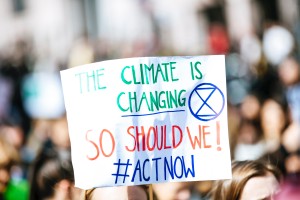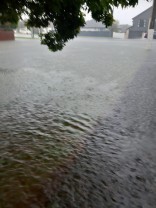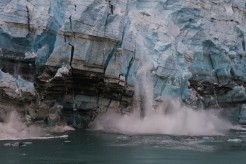
OPINION: Global unity and collaboration essential for planetary health
 As Aotearoa and the rest of the world continue to face the devastating consequences of the climate crisis, HPF’s Executive Director Sione Tu’itahi reflects on the need for humanity to understand the underlying causes and to think more strategically and long-term.
As Aotearoa and the rest of the world continue to face the devastating consequences of the climate crisis, HPF’s Executive Director Sione Tu’itahi reflects on the need for humanity to understand the underlying causes and to think more strategically and long-term.
‘We must act now, before it is too late’ is the warning that has been reiterated time and time again as our planet becomes less and less habitable due to climate change.
The recent heavy rainfall which resulted in severe flooding, mainly in Auckland, followed not long after by Cyclone Gabrielle which caused death, devastation and destruction in regions around the North Island brings home to us just how urgent this message is.
"We cannot put our heads in the sand when the beach is flooding. We must act now,” was the message from Green Party co-leader James Shaw to MPs at a parliament meeting on Feb 14 to discuss the state of emergency in the wake of Cyclone Gabrielle.
The Intergovernmental Panel on Climate Change’s (IPCC) fourth and final part of the Sixth Assessment Report, released last month, warns that more than a century of burning fossil fuels as well as unequal and unsustainable energy and land-use has led to global warming of 1.1°C above pre-industrial levels.
Five years ago, the IPCC highlighted just how massive the challenge would be to keep warming to 1.5°C. Today that challenge has become even greater due to a continued increase in greenhouse gas emissions. According to the IPCC The pace and scale of what has been done so far, and current plans, are insufficient to tackle climate change.

More powerful heatwaves, heavier rainfall, and other weather extremes further increase risks for human health and wellbeing, and ecosystems. Climate-driven food and water insecurity is expected to rise with increased warming. (Pictured left, Flooding turns May Road, Mt Roskill, Auckland into a river during the recent unprecendented rainfall)
In order to be better equipped to tackle these immense challenges, we need to reflect on the underlying causes: the convergence of four major global challenges that are human-induced - environmental catastrophes, economic crises, pandemics, and geo-political conflicts.
The intensifying weather events highlight that in our broken and only home, Planet Earth, we urgently need to elevate our consciousness to the level of global citizenship, of planetary health promotion thinking and practice.
As the UN Secretary-General, Antonio Guterres said in his state of the planet address last month, “We have started 2023 staring down the barrel of a confluence of challenges unlike any other in our lifetimes. Wars grind on. The climate crisis burns on. Extreme wealth and extreme poverty rage on. The gulf between the haves and have-nots is cleaving societies, countries, and our wider world. Epic geopolitical divisions are undermining global solidarity and trust. This path is a dead end.”
We are diverse, but fellow humans. We live in different locations, but they are connected rooms in our broken planetary home.
Some rooms are sinking like the Pacific region because our home temperature is rising, melting the ice poles. Some

A calving glacier. Witness to global warming. Photo by NOAA on Unsplash
rooms are flooded and destroyed by monsoons and cyclones. Other rooms are burning while others are in long draughts and famine.
Despite knowing that our home is burning, melting and sinking, and that we are the root-cause, we still focus largely on our individual rooms, as shown at the recent COP27 summit in Egypt.
We must raise our thinking to the level of global unity and collaboration to recognise the solutions that are latent within our inherent interdependence, oneness, and unity in diversity.
Born of this new consciousness will be values and principles that will inform and shape policies, institutions and practices for institutions, communities, and the individual on how to live peacefully and sustainably with each other and with Mother Earth.
We urgently need this global vision with local actions. Two Aotearoa health promotion initiatives that can contribute are Whanau Ora, and Health Families New Zealand. HPF also offers a third option, which was initially launched in 2020 to help families with addressing Covid-19. See Empowering whanau and Families in Aoearoa NZ against Covid-19 - A Health Promotion Tool.
Our planet is but one island in space and we are all members of one human family.
While retaining our identity and national loyalty, we nations and peoples in Aotearoa and the rest of the Pacific region are also global citizens. We have the capacity to be part of the solution and co-lead for the wellbeing of our peoples, and all of humanity. We either work together to live or perish together. The choice is ours.
To once again quote Guterres who said two years ago, “This is a moment of truth for people and planet alike. Covid and climate have brought us to a threshold. We cannot go back to the old normal of inequality, injustice and heedless dominion over the Earth. Instead, we must step towards a safer, more sustainable and equitable path … Now is the time to transform humankind’s relationship with the natural world – and with each other. And we must do so together. Solidarity is humanity. Solidarity is survival.”
(Banner Photo by Markus Spiske on Unsplash)